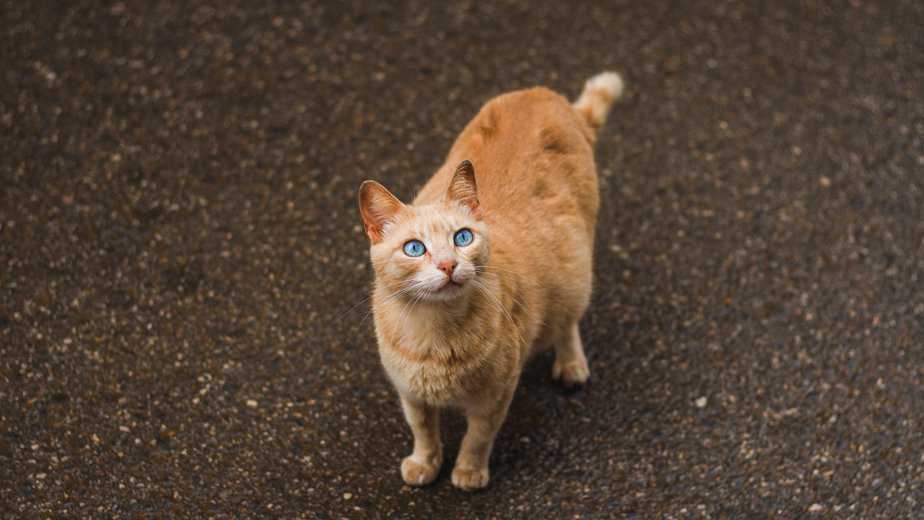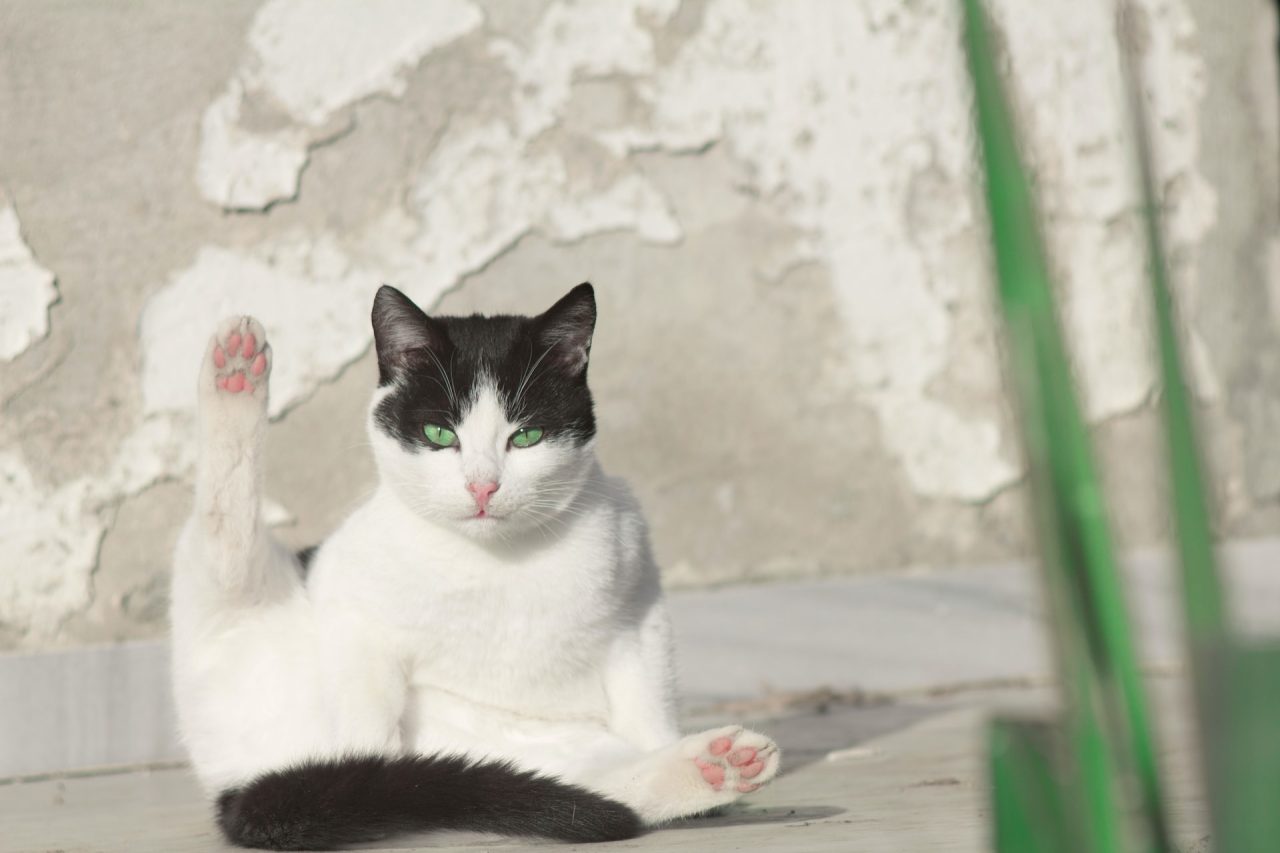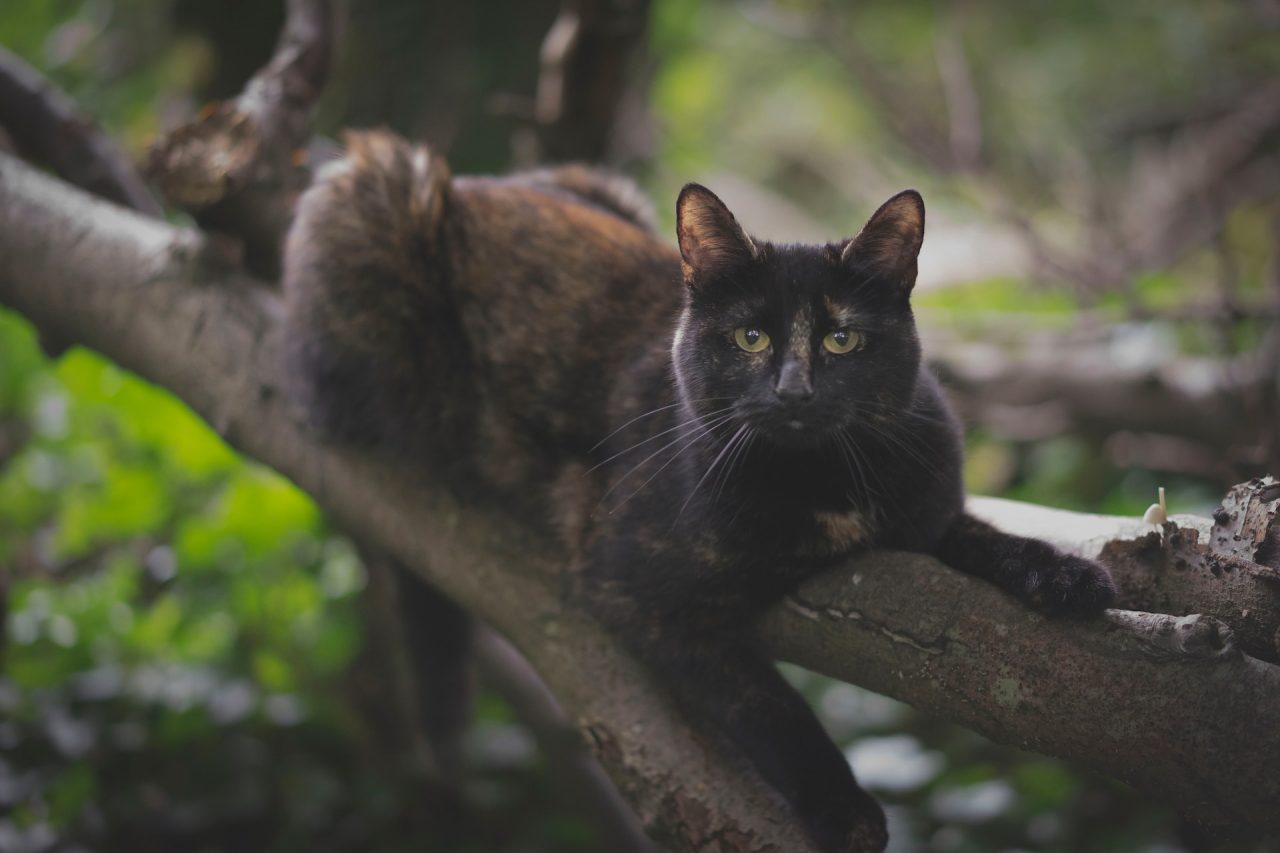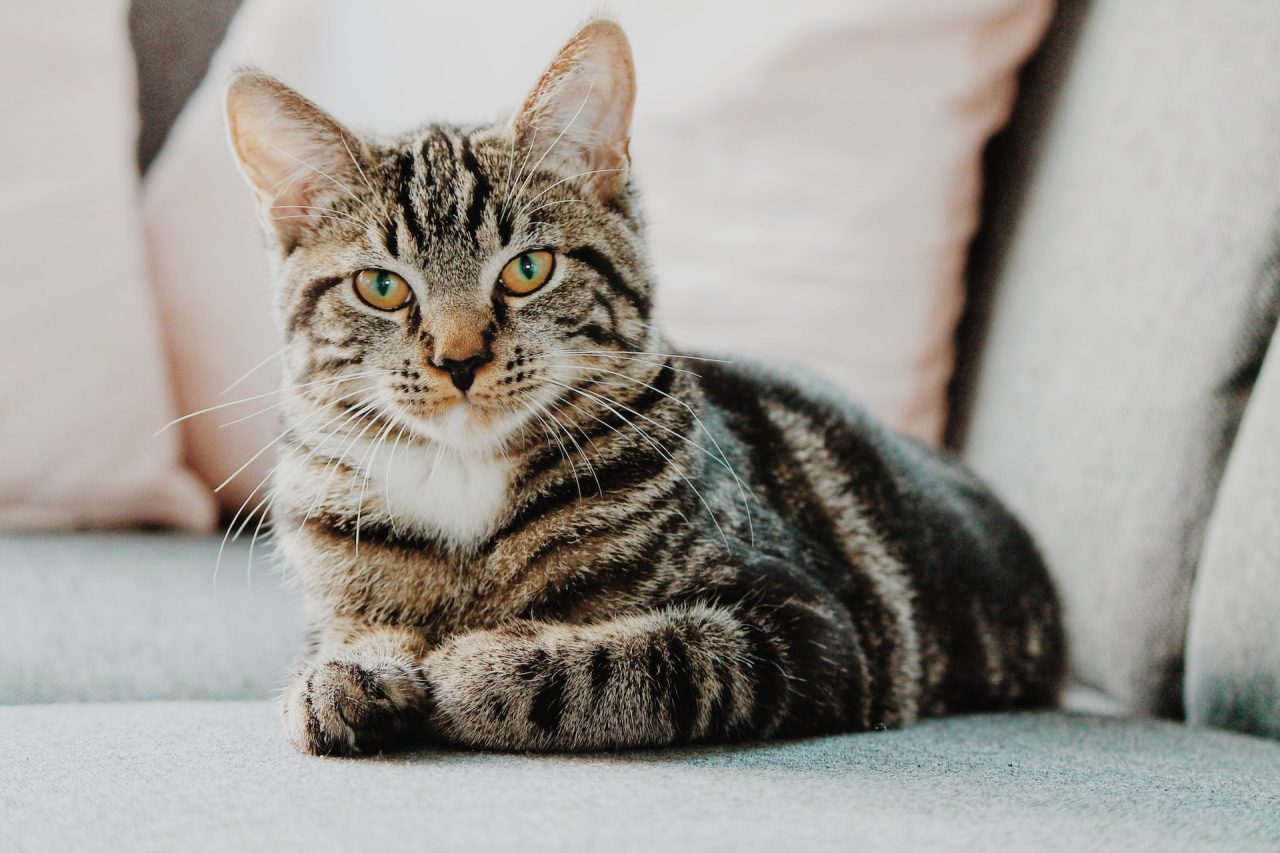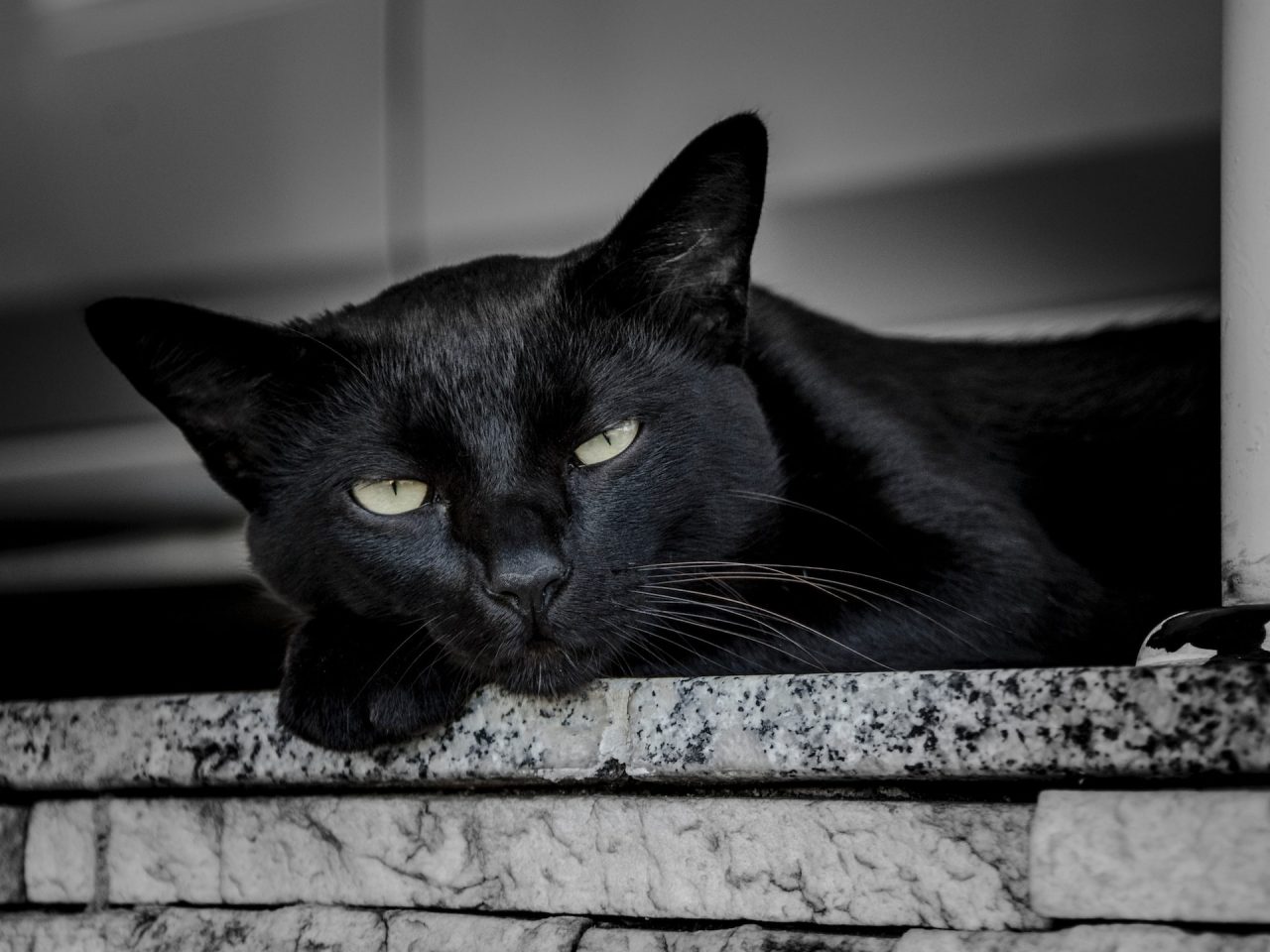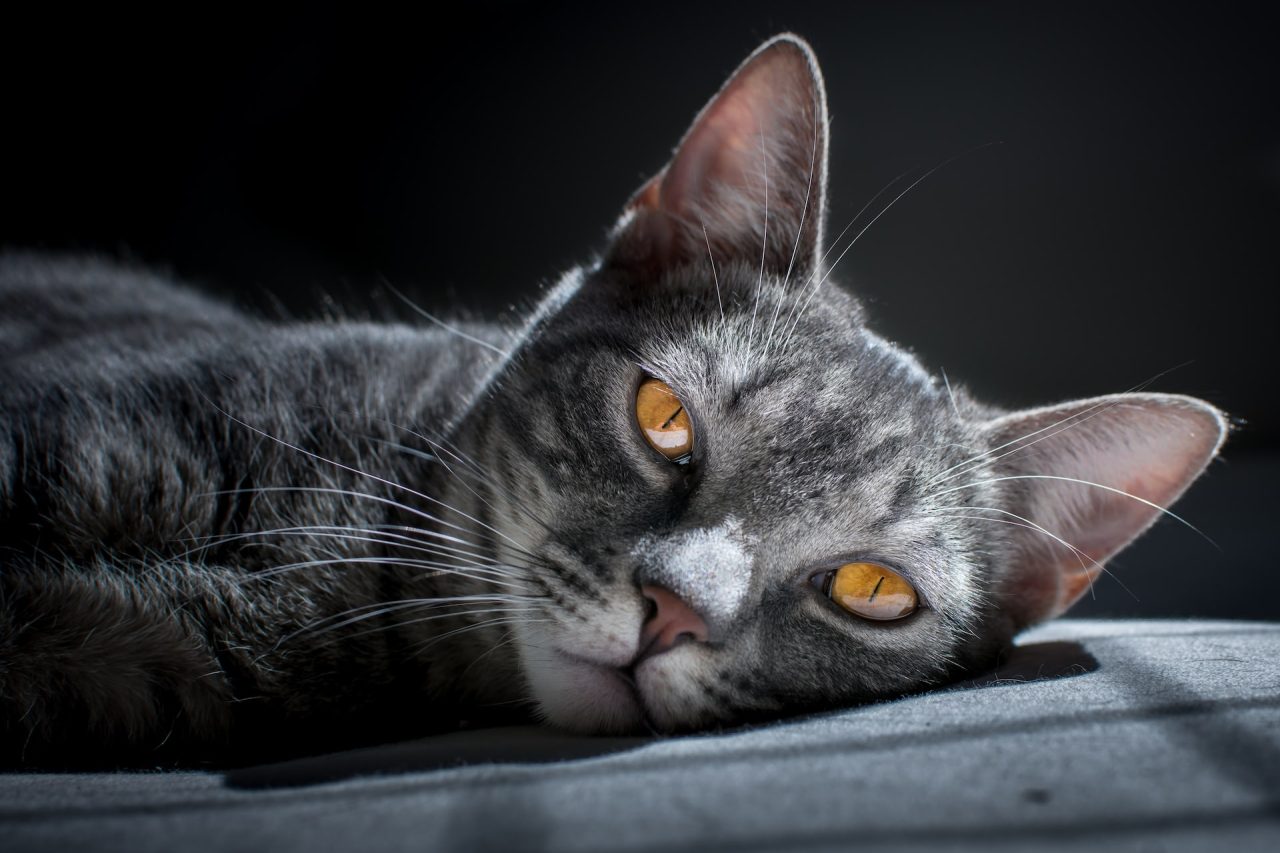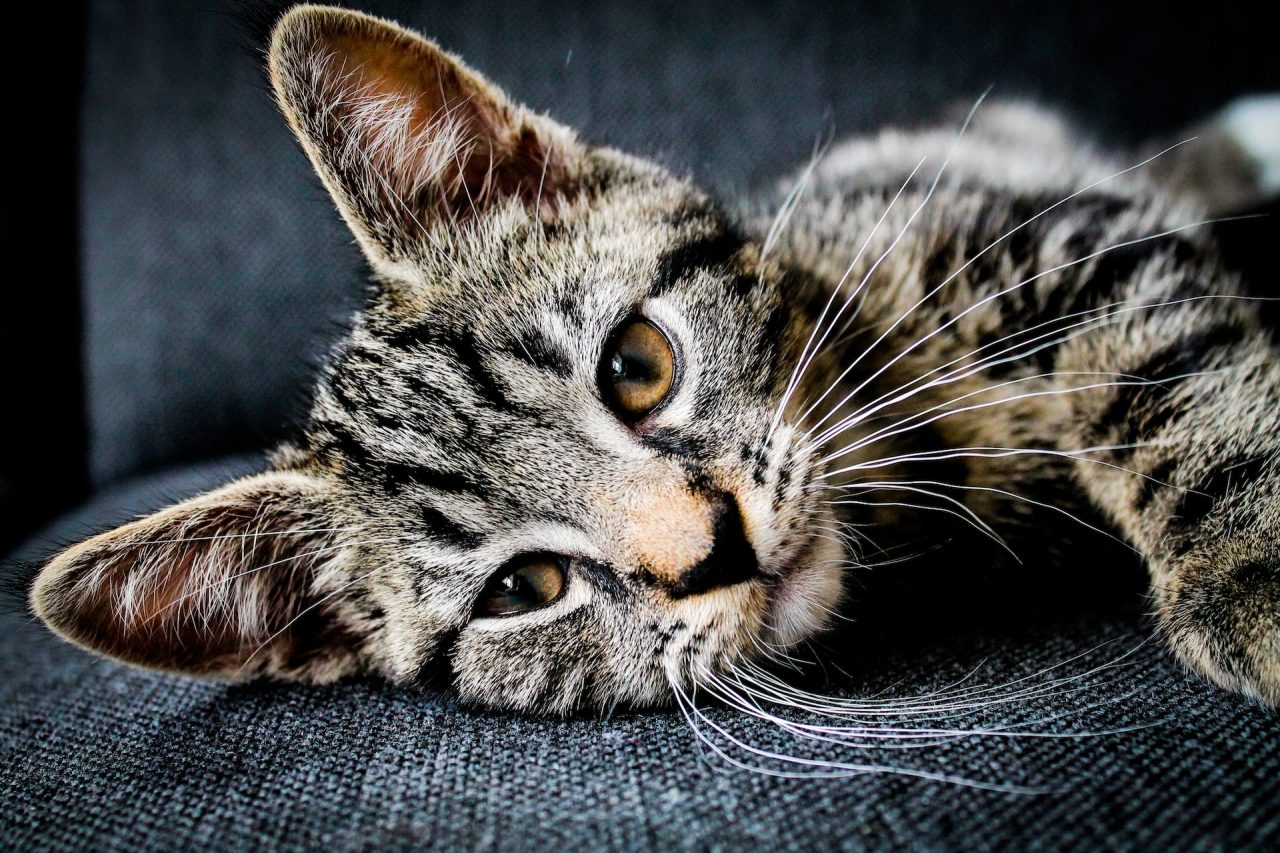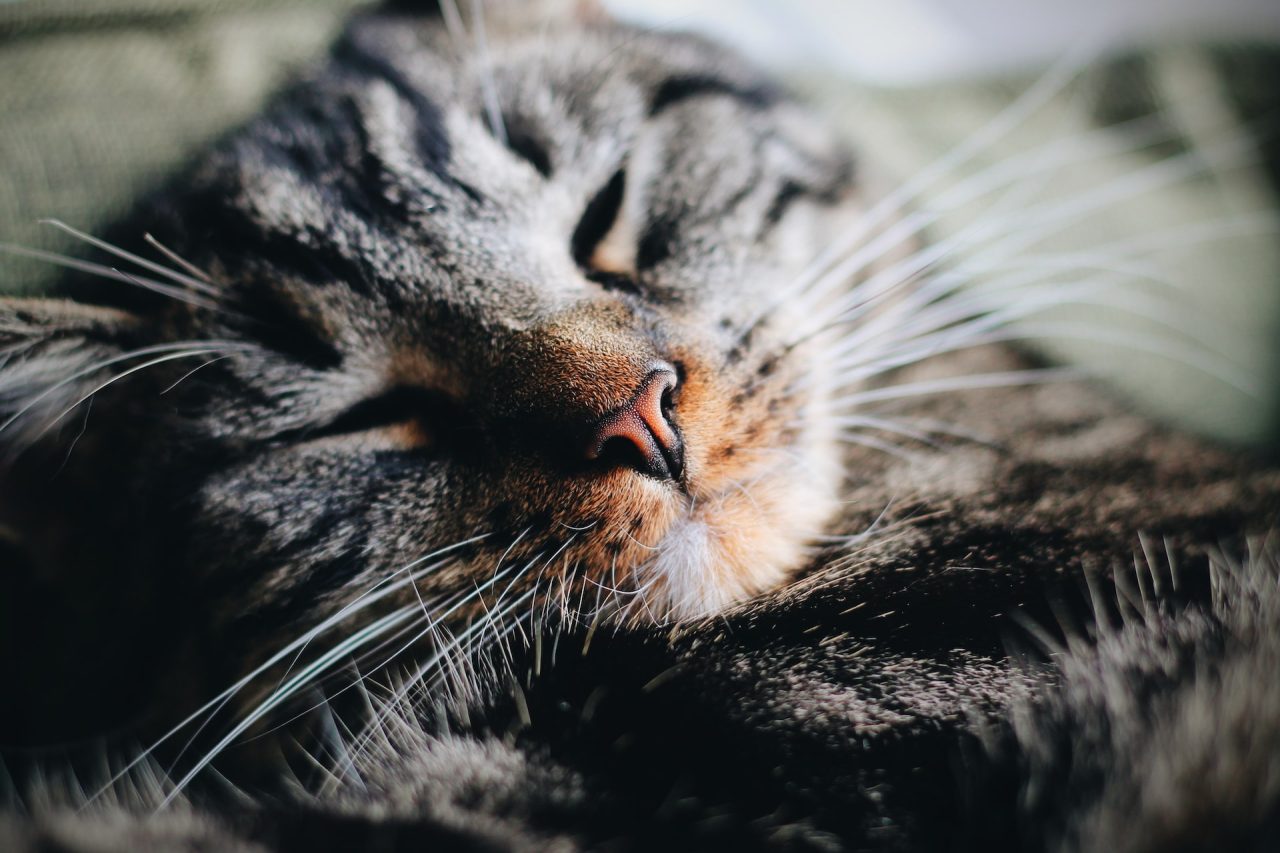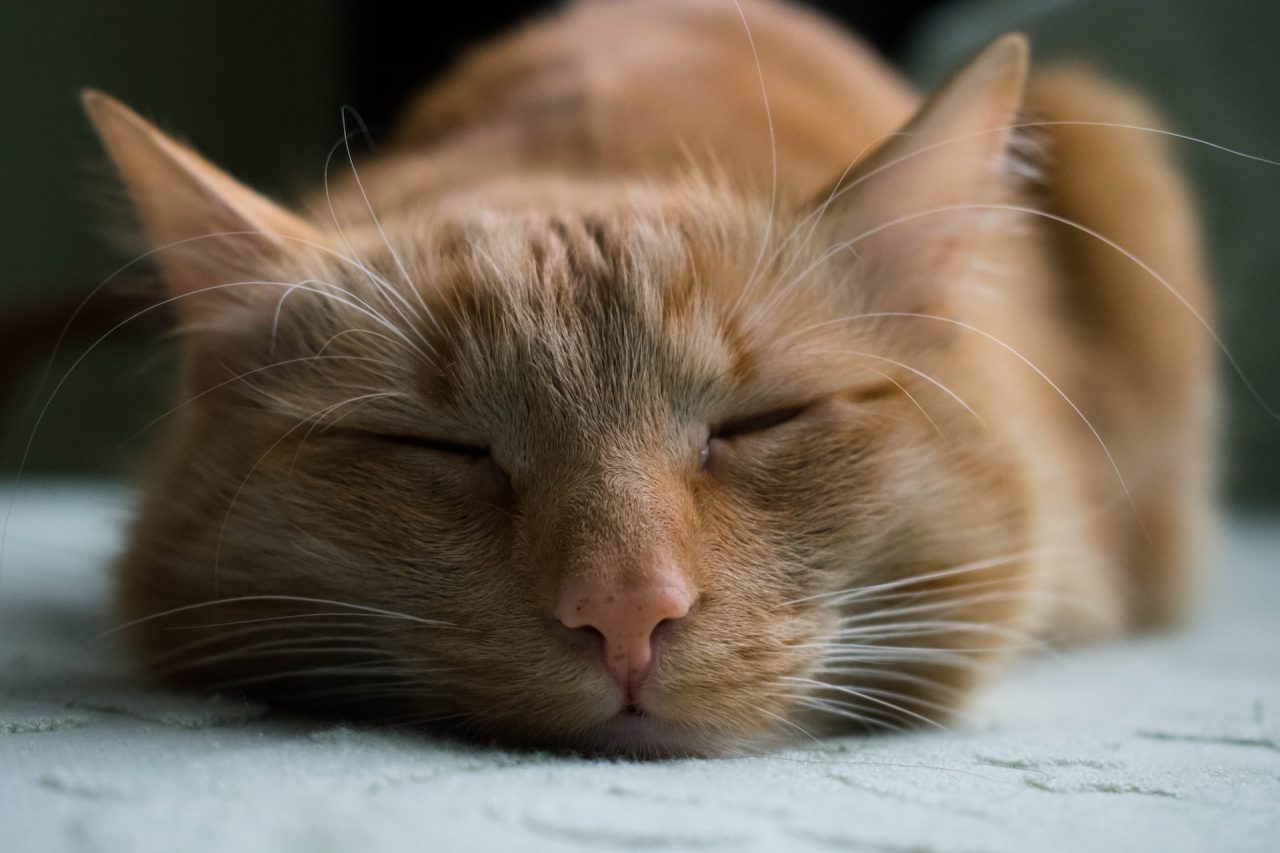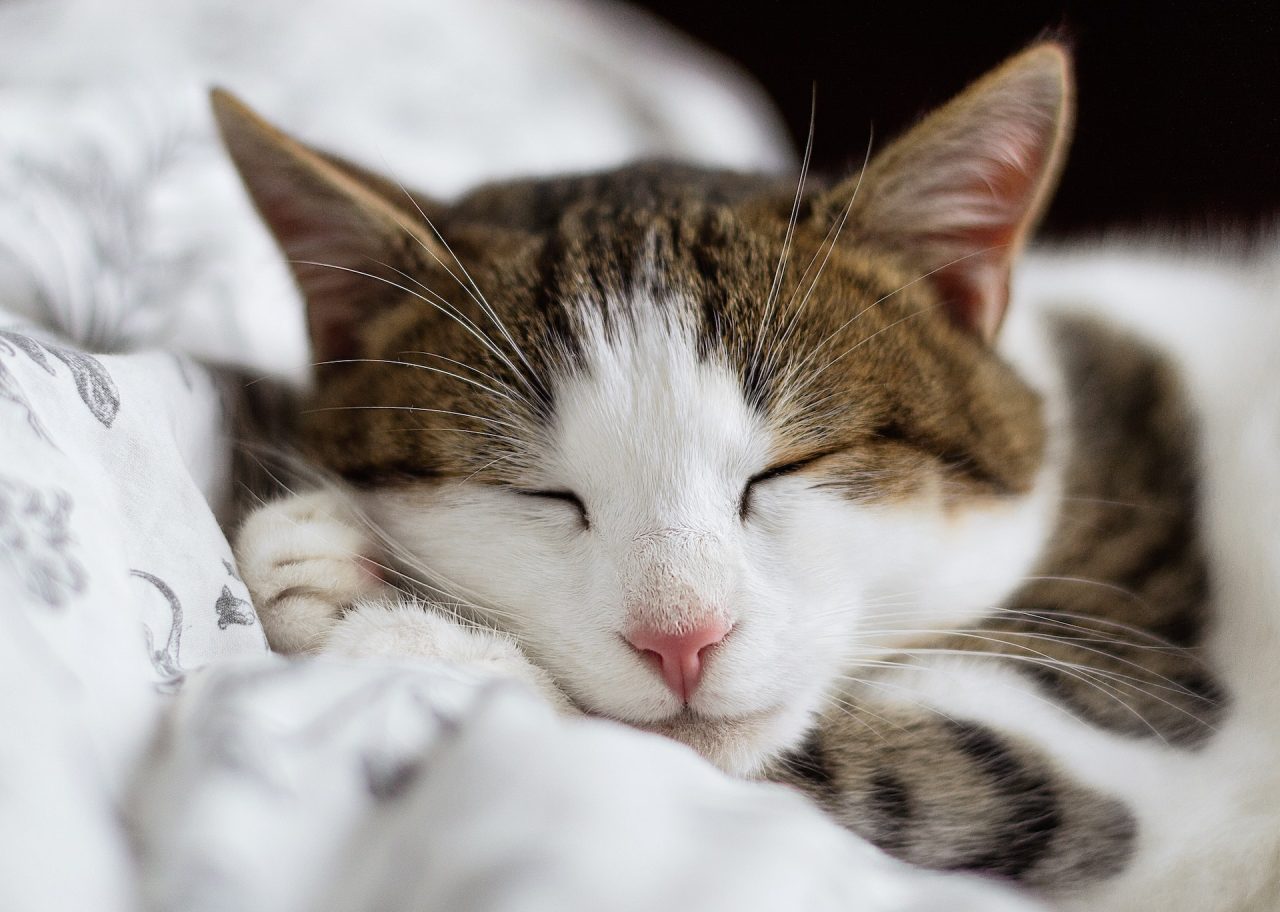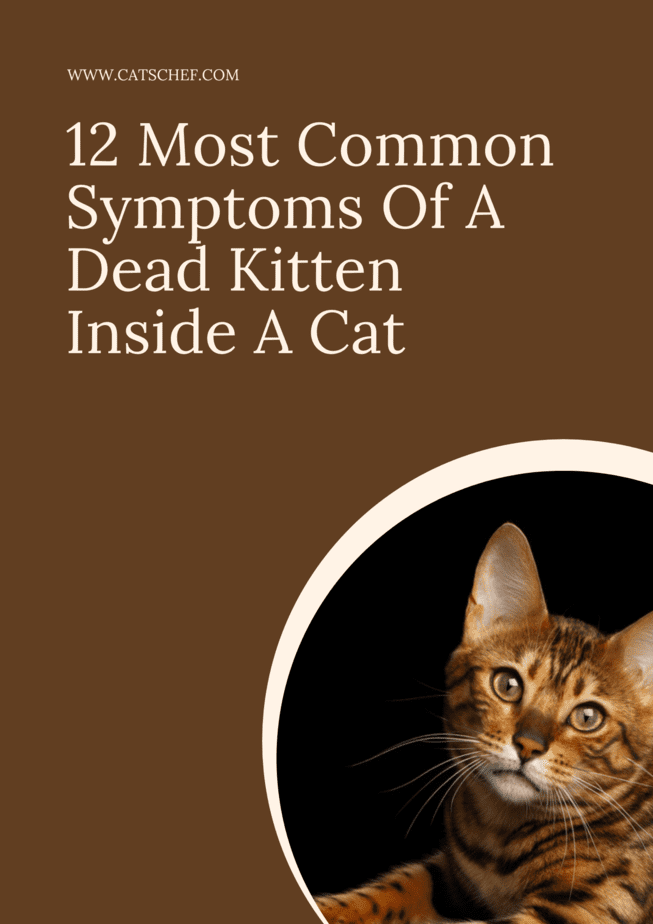📖 Table of Content:
Noticing that your kitty is pregnant is one of the cutest moments ever. And from that time onwards you’re just waiting to see your new little roommates. However, many complications can happen and you need to learn how to notice the symptoms of a dead kitten inside a cat.
Sometimes we are able to see that there’s something wrong, but we just can’t figure out what’s the real problem and what caused it. When it comes to pregnancy, this is one of the biggest issues that your feline might have to face, so it’s a good idea for her owner to get familiar with these symptoms.
I hope you’ll never have to use your knowledge, but it’s better to be safe than sorry. Here I’ll help you learn about the 12 most common symptoms of a dead kitten inside your cat. But I’ll also explain what can affect the number of babies your kitty is about to have.
What are the symptoms of a dead kitten inside your cat?
Now we’ve reached today’s main topic, the symptoms of a dead kitten inside a cat. There are many complications that can happen during pregnancy and this is one of them. If a kitten dies inside your cat, she will originally rot inside, and that could lead to much bigger problems.
So if you notice any of these 12 most common symptoms, you need to call your vet as soon as it’s possible. They will give your feline the right treatment and prevent any further complications. Let’s take a look at the signs that will help you figure it out.
1) She makes a lot of noise
What do you think, what’s more painful, giving birth when you’re a cat or when you’re a human? It’s actually equal as both situations cause a significant amount of pain during labor.
When a woman is giving birth you can often hear her scream because of the pain she’s dealing with. If you hear your feline vocalizing in a higher pitch than usual, then you’ll know that she’s in pain. However, keep in mind that she’s also doing it to grab your attention so you can help her if needed.
If you notice that she’s already delivered a few kittens, but she’s still making loud sounds even though you don’t see any kittens coming out, then it might be a sign that something’s wrong. And in most cases, it means that she feels the dead kitten inside, but can’t get her out of her body.
If your cat continues doing this for some time, you should take her to the vet and let them give her the right treatment which will prevent any further complications. And after that, she’ll be able to take care of the babies she’s just given birth to.
2) Your cat is more aggressive
During giving birth and even after it you might notice that your cat is acting strangely. If she was always a lovely cute fluffball who’s ready for cuddles 24/7, she might become a moody aggressive cat who doesn’t really fancy having anyone around. And yes, that means even you too.
If this happens, you should give her a little bit of time and space. She’s just given birth and it’s her natural instinct to protect her babies. Even though there is no confirmed timeline about how long the aggression will last, if you notice that she’s refusing your touch for quite some time, you should react.
That’s because it could mean that your cat has a dead kitten inside her and she’s afraid of your touch because something’s still in there. The safest way to approach this situation is to contact a vet. That way you’ll know what’s the cause of her aggression and how to deal with it.
3) Pacing
Pacing is one of the most common signs that show that there were some complications during your feline’s pregnancy and giving birth. Most often it tells us that there’s a dead kitten stuck inside her body.
If you notice your cat pacing back and forth, or running around the house and entering one room after another like she’s looking for something she’s lost, then she might be dealing with the problem I’ve just mentioned.
This behavior usually proves that she’s feeling uncomfortable and that something is causing her pain. If she’s not touching the specific part of her body, it could mean that the pain is coming from the inside, where she can’t reach it. And she’s trying to figure out what’s wrong so she’s acting strange.
4) She has decreased appetite
The delivery process takes a lot of energy and it exhausts your cat. The only way she can get her energy back is through food intake and sleep. After delivering her kittens, a mother cat needs many nutrients so she can raise healthy babies who’ll gather all the strength they need pretty quickly.
As we already know, playing, eating, and sleeping are their favorite activities so this doesn’t seem like a problem at all. However, many cats lose their appetite after they’ve just given birth. It’s said that it’s one of the psychological effects of giving birth but it shouldn’t last for long.
It comes because of the excitement, end of pain, and also fear of having someone you need to protect from everyone. You probably know how protective animals are of their babies. And cats are one of the most extreme cases of that.
However, if you notice that your cat is refusing to eat for a long time, it might be a sign that there’s still a kitten inside her. Unfortunately, if a longer period of time has passed, it’s likely that we’re talking about a dead kitten that she can’t get out of her body.
5) You notice discharge
Another symptom that might point out to the fact that there’s a dead kitten inside a cat is noticing much more discharge than there should be. I’m saying “than there should be” because it’s normal to notice some discharge when she’s giving birth.
Most commonly, it can be bloody, clear, or pus-like, and the amount of it can vary. If there’s too much of it, then it’s likely that your feline is dealing with some health issues.
The most common cause is infections because cats are more vulnerable during their pregnancy. However, it could also be a sign that there’s a dead kitten inside your feline which is causing her to bleed much more than it’s normal.
It’s especially alarming if it’s happening after you thought that she’s given birth to all of her kittens. Or in other words, if you notice the discharge when a few hours have passed after she’s delivered her last baby.
6) Your feline is dealing with lethargy
We all deal with lethargy from time to time. Especially if we’re extremely tired because we’ve overworked ourselves… Or we simply didn’t have enough time to rest as much as we would like. So we end up feeling down and extremely tired.
The same thing can happen to animals. If your cat seems like she doesn’t have any energy to do the things she usually enjoys doing, then it might be a sign she’s dealing with lethargy. That’s especially true if she’s refusing to play and eat as those are usually cats’ favorite activities.
Lethargy can also be one of the symptoms of a dead kitten inside a cat. But how? Because the body of a dead kitten is taking up space, and using a lot of energy and nutrients that were meant for the mother cat.
If this is the case, your feline might seem tired and uninterested in any activities she usually does. These symptoms should make you take her to the vet as soon as possible. This will help prevent your kitty from having any further health problems.
7) She’s vomiting
Vomiting is another common symptom of dealing with a dead kitten inside your feline. Even though some cats vomit after giving birth, it should only happen once. It usually happens because of the pain and stress of delivery.
However, if it continues for some time, it should be an alarm for you to react quickly. If there’s a dead kitten inside your cat, it’s taking up space that would be filled with food.
If your cat who’s recently given birth is vomiting every time she tries to eat, then this is probably the reason why it’s happening. It’s important to take her to the vet as soon as possible as she needs her nutrients to stay healthy, but also to be able to raise healthy kittens.
8) She isn’t focused on her kittens
After giving birth, a cat likes to be left alone for some time so she can focus on her kittens. She wants to lick them so they’re clean and get them ready to eat. She’ll also keep an eye on them all the time because she wants to protect them from everyone.
Pay attention if your cat does this after delivering her babies. If she’s focused on herself instead, it might point out the fact that there are more of them inside her.
If a lot of time has passed, but there are no new kittens coming out, it might mean that there’s a dead kitten inside your cat.
9) Straining
Did you know that the process of queening has 3 stages? And during the last two cats usually strain or bear down. That’s because of the pain, and other difficulties that are common during giving birth. But also because of the uterine contractions that are happening.
Cats usually strain so they can gather all the strength needed to push out the kittens. And once they do, they lick them so they are clean, and then they start straining for the delivery that follows.
It usually lasts for around 20 to 25 minutes maximum. However, if you notice that she’s doing it for a longer period of time, it could be one of the symptoms of a dead kitten inside a cat.
That’s because she feels there’s still a baby inside her body, and she’s confused because it’s not coming out. If you notice this, then it means you need to contact your vet.
10) She’s panting
One of the first signs that might tell you that your kitty is about to give birth to her kittens is the panting. Due to the fact that a lot of energy is needed for such an action, your cat might start breathing heavily. The pain and the stress also add to it.
However, if it seems like your cat has given birth to all her kittens and there’s no one new coming out, but she still has trouble breathing, it could mean that there’s a dead kitten inside her.
She’s probably confused and she’s trying to get her out, but she can’t do it. If this is the case, then she requires professional help as soon as it’s possible. As many other issues can appear if the dead kitten is not removed.
11) Deathway
This is one of the most serious symptoms of a dead kitten inside a cat. But luckily, it’s also one of the least common ones. I still want to mention it because not noticing it might be fatal for your cat.
Sometimes a dead kitten that is still in her mother’s body can cause different infections. And some of them are so strong that they can spread to other organs and cause their failure, which could possibly lead to death.
If you noticed any symptoms that might show that there really is a dead baby cat inside of your feline and that she’s not doing well, you need to contact your vet immediately. The sooner you do it, the bigger the chances of saving your cat will be.
This is a serious issue that requires professional help. The good news is that if you react on time, it’s most likely that everything will be just fine and that your feline will recover quickly and be able to raise healthy and strong kittens.
12) Abscesses
Have you ever heard about abscesses? Don’t worry, I’m here to explain everything. It’s a collection of pus that appears under your cat’s skin. It can also affect other animals, but it’s very common for cats to deal with it.
That’s because they often have cat fights and scratches can cause abscesses. Their mouth and claws usually contain many bacteria. When they scratch or bite each other, it’s easy to cause an infection.
However, it can also happen during pregnancy if there’s a dead kitten inside a cat. That’s because an area around the dead kitten can get infected. This, in turn, can cause a lot of pain and make your cat feel sick and weak.
If you notice any abscesses, it’s very important to react quickly. The vet will help treat it, and you’ll know whether there’s a dead kitten inside or not. If yes, it will get removed and your feline will be able to recover her body.
What can affect the number of kittens your cat is about to have?
I know that you’re probably very excited to get some new little fluffballs. But the number is always a mystery. Did you know that if your kitty is pregnant, there are actually some things that can affect the number of kittens she’s about to have?
What do you think they are? The color of her fur and the food she eats, or maybe her age and history of illnesses? I have all the answers you need, so let’s check them out.
1) Age
There are many factors that can affect the number of kittens your feline is about to have. But the biggest one is her age and general health condition. If she’s young and never had many health issues then she has a bigger chance of giving birth to more kittens.
But that’s not the only way your feline’s age can affect the number of newborns. A cat mom who’s about to give birth for the first time will likely have fewer kittens compared to the experienced mother cat. However, this is not true if the older cat has many health issues.
It’s also common that older felines will give birth to kittens who won’t be as strong and healthy as the ones that were born to a younger mother.
2) The season of the year
Have you ever heard of the Estrous cycle? It’s also known as a heat cycle and every female cat goes through it. It means that your kitty is ready for mating.
And there’s a theory that suggests that if she mates often she’ll have more litter; which means that the Estrous cycle plays a big role in the number of kittens she’s going to have.
When it comes to outdoor cats, most of them go into the heat cycle during spring and fall. Why do they do that? Because they want to rest when the weather gets cold and it’s already known that cats sleep longer during winter. So they want to be safe.
However, indoor cats don’t really notice seasonal changes that easily so they’ll be able to mate in every season of the year. The only problem that can occur is whether there is a male cat around or not.
3) Cat’s breed
The second thing that can affect the number of kitties your cat will give birth to is her breed. Genetics always have a direct impact on pregnancy.
Siamese breed of cats usually has many kittens. While other breeds like Mint or Persian cats give fewer babies because they are famous for having a small litter.
Before adopting or buying a cat, you should consider whether you’re looking for the one who’ll give you many baby fluffballs or the one who’ll be able to give you just a few of them.
Keep in mind that you need to make sure there’s enough space, food, water, and attention for all of them if you’re planning on having a big cat family.
4) Illness
And the last thing I want to mention is how illness can affect your kitty’s ability to give birth. If you find her fertility very important, then you should get her checked every now and then. Especially if you know she usually struggles with different health issues.
Some of them like various kinds of infections and diseases might even affect the size of her litter. One of them is the feline panleukopenia virus. It can easily reduce the number of kittens that your cat is going to give birth to.
Panleukopenia virus is also responsible for stillbirth and abortion of litter which needs to be done during the early stages of pregnancy when a cat gets infected.
Don’t worry, because if you consult your vet about this topic, they will explain everything and tell you how you can prevent this affection from happening. One of the ways to do so is to watch the diet you have for your kitty.
Final words
As we could’ve concluded, noticing any of these symptoms should be a good enough reason for you to call your vet as soon as you can. A dead kitten inside a cat can always cause many problems that you won’t be able to treat without professional help.
If you react quickly, there’s always a big chance that everything will be just fine. Your new mother cat will be able to take care of and raise healthy, happy, and strong kittens. Don’t be afraid to contact a vet. I know it’s stressful but they will always do their best to help your cat heal as soon as possible. Good luck!
